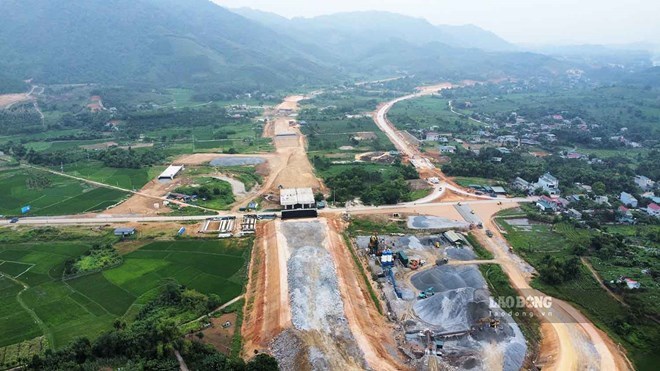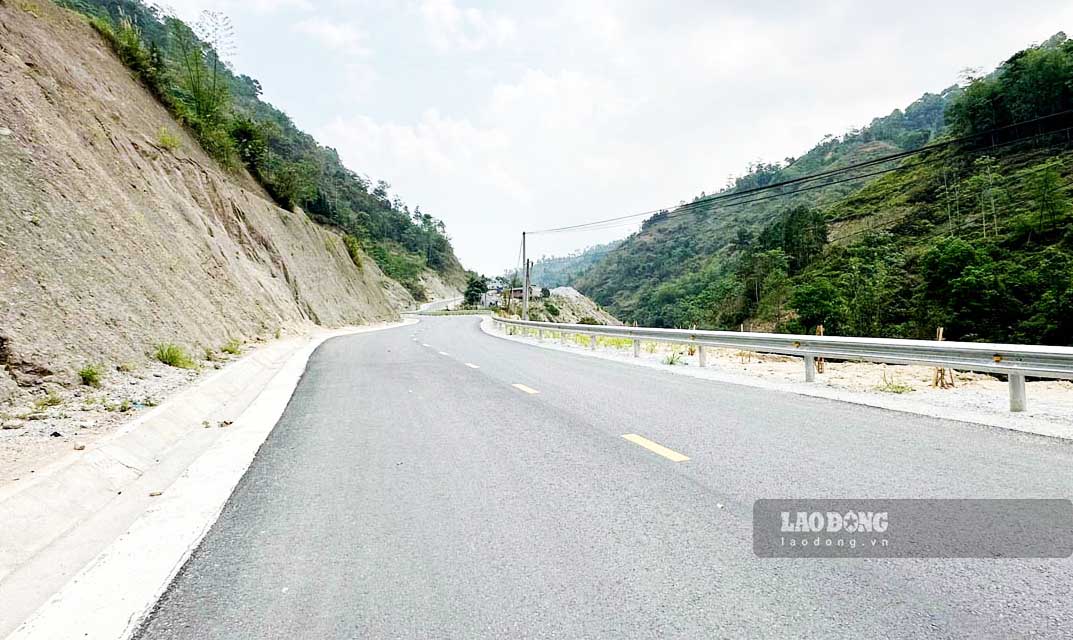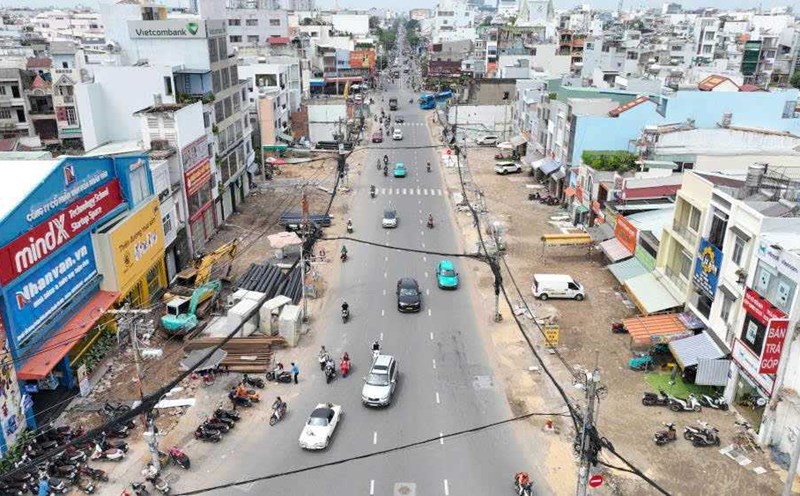Tuyen Quang - Phu Tho Expressway will officially open to traffic at the end of 2023, with a length of 40km connecting to Hanoi - Lao Cai Expressway. This expressway has contributed to shortening 1/3 of the travel time from Tuyen Quang administrative center to Hanoi capital (from 3 hours to 2 hours).
According to the operator, the daily traffic volume on the route is about over 7,000 vehicles, increasing on weekends or holidays; at the same time, reducing traffic volume on National Highway 2, improving safety for vehicles.
After the success of the first expressway, Tuyen Quang province continues to deploy the Tuyen Quang - Ha Giang expressway with a length of more than 100km, a total investment of nearly 10,000 billion VND with the orientation of connecting to Thanh Thuy International Border Gate and shortening travel time to localities in the rocky mountains.
Currently, this "backbone" expressway of Tuyen Quang province is being accelerated to complete in 2025 according to the direction of the Government. With the route running along the area, the Tuyen Quang - Ha Giang expressway is determined to help expand, creating new development space.

In addition, thousands of billions of VND have been invested by Tuyen Quang province in developing intra-provincial transport infrastructure such as the connecting road from Tuyen Quang - Phu Tho Expressway to QL.27, QL.4C connecting the Dong Van Stone Plateau, upgrading DT.178, DT.177 and QL.279 routes to facilitate connections with the disadvantaged areas of Xin Man and Hoang Su Phi.
In areas of Ha Giang (old), inter-district and commune roads, village and inner-field roads have reached a high hardening rate of 1,438 km. Of which, 85% of border villages have roads meeting new rural criteria with efforts to connect traffic at the border gate of the Fatherland, helping to eliminate obstacles, expand trade and develop production in border areas.
Meanwhile, in most communes of Tuyen Quang province (old), 85% of inter-commune roads and 70% of inter-village roads have been concreted. The program "Eliminate temporary bridges, bridges for people" helps thousands of households in mountainous areas escape isolation, contributing significantly to accelerating the progress of building sustainable new rural areas.
Synchronous investment in transport infrastructure has created favorable conditions for tourism development, helping tourism become an important economic sector of Tuyen Quang. Investment in transport infrastructure has also contributed significantly to connecting remote areas and sustainable poverty reduction in the mountainous province of Tuyen Quang.
Informing reporters, Mr. Luu Viet Anh - Deputy Director of the Department of Construction of Tuyen Quang province - said that with the goal of "paving the road ahead", Tuyen Quang's transportation system will continue to be invested in and completed in the coming period.
"The Department of Construction coordinates to advise on the implementation of phase 2 of the Tuyen Quang - Ha Giang expressway project, including opening a new section from Tan Quang - Thanh Thuy International Border Gate. At the same time, renovating national highways, provincial roads and rural transportation systems to create a traffic network that is open all year round, facilitating socio-economic development," said Mr. Luu Viet Anh.
After the merger, Tuyen Quang has an area of nearly 14,000 km2, a population of more than 2 million people, ranking 7th in the country. The terrain stretches from the midlands to the highlands, with a border between the two provinces of Yunnan and Guangxi (China). Therefore, developing and completing transport infrastructure is one of the important tasks.

According to Tuyen Quang Provincial Party Secretary Hau A Lenh, developing the infrastructure system, especially the traffic system, is identified as a key content in the breakthrough stages.
"The province is determined to complete the expressway system connecting Phu Tho - Tuyen Quang - Thanh Thuy border gate with a length of 165 km. This is an artery axis that ensures inter-regional and smooth connection with the capital Hanoi and the northern mountainous provinces," Mr. Hau A Lenh emphasized.
Along with that, Tuyen Quang province continues to upgrade and expand national highways, provincial roads and level crossings connecting economic centers, industrial parks, and key tourist areas. Synchronously developing urban infrastructure, social infrastructure, digital infrastructure, creating a solid foundation for rapid and sustainable development.
In the coming term, Tuyen Quang province strives to become a province with average development in the midlands and mountainous areas of the North. The target of an average economic growth rate of 10%/year or more, budget revenue by the end of the term will double, and per capita income will increase from 65 million VND to 95 million VND/year.










